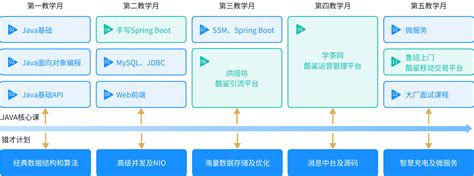Title: Mastering Java Programming: A Comprehensive Guide
Java is a versatile and powerful programming language widely used across various industries, from software development to web applications and mobile apps. Whether you're a beginner or an experienced programmer looking to enhance your skills, mastering Java can open up numerous opportunities for you. In this guide, we'll delve into the essential aspects of Java programming, covering key concepts, resources, and tips to help you become proficient in Java development.
Understanding the Basics of Java Programming
Java is an objectoriented programming language known for its platform independence and robustness. Here are some fundamental concepts you need to grasp:
1.
Syntax and Structure
: Java syntax is similar to other programming languages like C and C, making it relatively easy to learn for those familiar with these languages. Understanding basic syntax elements like variables, data types, operators, and control flow structures is crucial.2.
ObjectOriented Programming (OOP)
: Java is based on OOP principles, including encapsulation, inheritance, polymorphism, and abstraction. Mastery of these concepts enables you to write modular, reusable, and maintainable code.3.
Core Libraries
: Java provides a rich set of standard libraries (Java API) covering areas such as input/output, networking, collections, and concurrency. Familiarize yourself with these libraries to leverage their functionalities in your projects.Recommended Learning Resources
1.
Online Courses
: Platforms like Coursera, Udemy, and edX offer a plethora of Java courses catering to different proficiency levels. Look for courses that provide handson projects and exercises to reinforce your learning.2.
Books
: Books like "Head First Java" by Kathy Sierra and Bert Bates, "Effective Java" by Joshua Bloch, and "Java: A Beginner's Guide" by Herbert Schildt are highly recommended for beginners and advanced learners alike.3.
Documentation and Tutorials
: Oracle's official Java documentation is an invaluable resource for understanding Java APIs and language features. Additionally, websites like Java Tutorials Point and Baeldung offer comprehensive tutorials and articles on various Java topics.4.
Coding Challenges
: Websites such as LeetCode, HackerRank, and CodeSignal offer coding challenges and exercises to hone your problemsolving skills in Java.Best Practices for Java Development
1.
Follow Coding Standards
: Adhere to industrystandard coding conventions and style guides (e.g., Oracle's Java Coding Conventions) to write clean, readable, and maintainable code.2.
Use Design Patterns
: Familiarize yourself with common design patterns like Singleton, Factory, Observer, and MVC. Applying design patterns appropriately can improve the architecture and scalability of your Java applications.3.
Exception Handling
: Implement robust error handling mechanisms using trycatch blocks and exception propagation. Handle exceptions gracefully to ensure the reliability of your applications.
4.
Memory Management
: Understand Java's garbage collection mechanism and memory management principles to optimize memory usage and prevent memory leaks in your applications.Advanced Topics to Explore
1.
Concurrency and Multithreading
: Learn about Java's concurrency utilities like threads, synchronized blocks, and concurrent collections to develop efficient and scalable concurrent applications.2.
JavaFX and GUI Development
: Explore JavaFX for building crossplatform graphical user interfaces (GUIs) and interactive applications with rich multimedia support.3.
Java EE (Enterprise Edition)
: Dive into Java EE technologies like Servlets, JSP, JDBC, and JPA for developing enterpriselevel web applications and backend systems.4.
Microservices and Spring Framework
: Gain proficiency in Spring Boot and Spring Cloud for developing microservicesbased applications and RESTful APIs.Conclusion
Mastering Java programming opens up a world of opportunities in software development, web development, mobile app development, and beyond. By understanding the fundamentals, exploring advanced topics, and following best practices, you can become a proficient Java developer capable of building robust, scalable, and highperformance applications. Continuously update your skills, stay abreast of industry trends, and never stop learning on your journey to becoming a Java expert. Happy coding!
Mastering Java Programming: A Comprehensive Guide
- Syntax and Structure
- ObjectOriented Programming (OOP)
- Core Libraries
Mastering Java programming opens up a world of opportunities...
